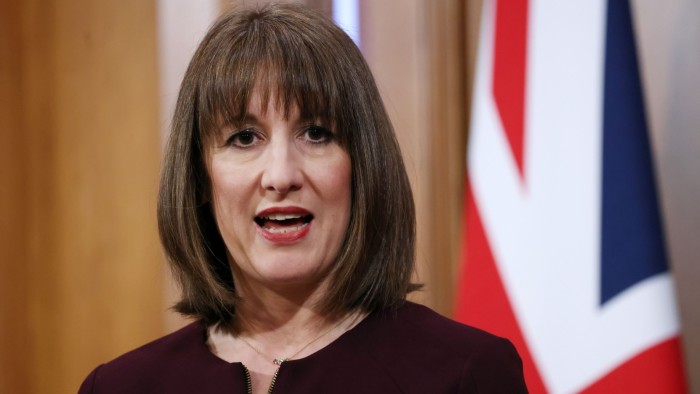Unlock the Editor’s Digest for free
Roula Khalaf, Editor of the FT, selects her favourite stories in this weekly newsletter.
Chancellor Rachel Reeves has said that Donald Trump’s global trade war has made it even more “imperative” for the UK to improve post-Brexit trading relations with the EU, ahead of a key summit next month.
Reeves is pushing for Britain to pursue an ambitious economic agenda in EU/UK “reset” talks, although the government continues to rule out any move to rejoin the EU customs union.
The chancellor, in an interview with the Financial Times, also said that Britain could exploit the chaos unleashed by the US president by presenting itself as “a place of stability” to invest.
Her comments came on the day the government confirmed backing for a major new theme park in Bedford, 60 miles north of London, which she said was “testament to the stability and security the UK offers”.
Speaking at 11 Downing Street, Reeves said the UK wanted to improve trade with “partners in Europe”, adding: “Since Brexit, it has been harder for British firms to export around Europe, particularly smaller firms. Many feel shut out of European markets.”
She said that a summit between the UK and the EU on May 19 will be a chance “to refresh our relationship and make it easier for businesses to trade”.
Reeves added: “I feel that in the current environment, there is a greater willingness from countries around the world to look at both tariff and non-tariff barriers that are holding back trade.
“Many of the developments, whether it is Russia’s invasion of Ukraine or the challenges in global trade at the moment, mean that there’s an even greater imperative to improve our trading relationships with Europe.”
Reeves is pushing for Sir Keir Starmer to take an ambitious approach to removing EU trade barriers. She has proposed that Britain should align its regulations covering established industries, such as chemicals, with Brussels rules to enhance market access.
However, EU officials warn against Britain “cherry-picking” parts of the single market and that the UK’s official objectives have not changed. They include closer defence co-operation, removal of barriers to food trade and mutual recognition of qualifications.
Reeves was due to meet top City executives on Wednesday morning including Charles Nunn, chief executive of Lloyds Banking Group, Dan Olley, chief executive of Hargreaves Lansdown, and Andrea Rossi, chief executive of M&G.
She promised to “talk about the impact and the response they want to see from the government” in reply to Trump’s tariffs and the global economic fallout.
Reeves said: “No one wants to see a trade war. It’s in no one’s interest. Knee-jerk reactions are not going to be good for UK businesses or UK jobs, and so we’re approaching this in a responsible, calm way.”
The chancellor added that she would seek to negotiate a US trade deal when she went to Washington later this month for the IMF meeting of global finance ministers.
There was “absolutely no doubt that trade will very much be on the agenda when we’re at the IMF later this month”, she said.
She declared “nothing is off the table” when seeking to react to the tariffs imposed by Trump on the UK, which have sparked reciprocal rises in countries such as China, but that the UK government was “approaching tariffs with a cool head”.
Reeves said the decision by Comcast, the US media giant, to invest into a multibillion-pound theme park in Bedford was a “real show of confidence in the UK economy”. The government is investing in local transport infrastructure to facilitate the project.
She said that Comcast could have chosen many different countries but “the fact that they’ve chosen Britain shows the strengths of our economy, the enduring strengths, and also our huge advantages in the creative industries”.
Reeves said the global economic turmoil unleashed by Trump’s tariff war had made the UK a more attractive place for international investment.
“Growth is the number one mission of this government, and securing this investment, this landmark project, is testament to the stability and security that the UK offers as a place to invest,” she said.
She said the economy would see “£50bn of benefit” through the “combination of stronger tax revenues [and] also the jobs that it’s going to create, the money that’s going to be put in people’s pockets”.
The development and running of the site is estimated to create 20,000 jobs in a range of construction and creative industries, as well as in the retail and hospitality sector.
Reeves declined to be drawn about whether the government would need to react or take economic action to support the already faltering UK economy, which is at risk of being hit by the global trade war.
When asked about the potential for tax rises or spending cuts, she said: “Economic stability, fiscal stability, is the key underpinning for a strong and growing economy, and that’s why we are, as a government, so committed to those fiscal rules.”




